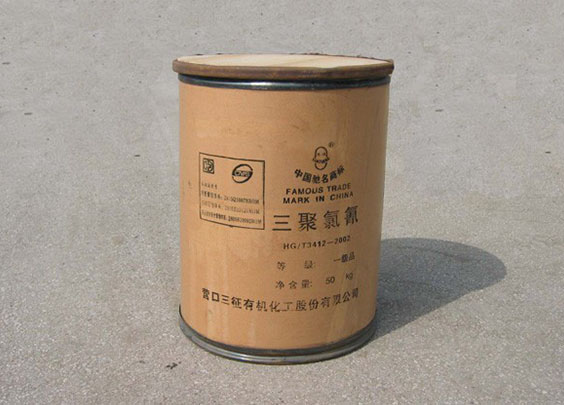
YINGKOU SANZHENG ORGANIC CHEMICAL CO., LTD. LIAONING CHINA
Address: No. 51, Xinxinli, Daqing Road, Zhanqian District, Yingkou City, Liaoning, China電話:0417-3638868
Fax: 0417-3638868
Email: ykszgs@sohu.com
Zip code: 115001
URL::m.sxjnp.com
Pesticides are generally synthesized from more toxic chemical substances, and their chemical properties are more active. After opening the bottle, the pesticides are in contact with the air. If they are not stored properly, they will easily become invalid. If the pesticides are invalid and used, it will delay the prevention and control of pests. . Pesticide manufacturers
How to judge whether pesticides are invalid? Here are a few simple methods for everyone:
(1) Identification method of dairy pesticides
Observation method: It is found that there are precipitation and layered flocculation in the pesticide. You can put the medicine bottle in hot water and let it stand for 1 hour. If the precipitate decomposes and the flocculation disappears, the pesticide is effective. Otherwise, it can no longer be used.
Shaking method: Layering occurs in the pesticide bottle, the upper layer of oil slick and the lower layer precipitate. You can shake the bottle forcefully to make the pesticide uniform and let it stand for 1 hour. If it is still layered, it proves that the pesticide has deteriorated and failed. If the layering disappears, it means that it has not expired and can continue to be used.
(2) Identification method of powder pesticide
Suspension method: Take 50 grams of powdered pesticide, put it in a glass bottle, add a little water to make a paste, then add an appropriate amount of water to stir evenly, and leave it for 10-20 minutes. Good pesticides have fine particles, less powder and slow precipitation; Pesticide powder settles quickly and more.
Scorching method: Take 10-20 grams of powdered pesticide, put it on a metal piece and burn it on a fire. If white smoke is emitted, it proves that the pesticide has not expired, otherwise it has expired. This method is usually used to identify 5% of carbendazim powder.

Observation method: If the powder pesticide has agglomerated and is not easily broken, it proves to be invalid and cannot be used again.
(3) Identification method of wettable powder pesticide
Take a cup of water, and gently sprinkle a little pesticide on the surface of the water. After 1 minute, if the pesticide cannot dissolve in the water, it means that it has deteriorated and expired. In addition, sprinkle 1 gram of pesticide into a glass of water and stir well. If precipitation occurs quickly and the liquid surface appears translucent, it also means that the pesticide has expired and cannot be used.
The above are some methods to judge whether pesticides are invalid. I hope it will be helpful to everyone. Usually, we must pay attention to the preservation of pesticides to prevent pesticides from invalidating and causing waste.
How to avoid using expired pesticides?
1. See the production date clearly when purchasing pesticides
1. Go to a regular pesticide manufacturer to buy, and try to buy as much as possible when buying, buy it now and use it now;
2. When purchasing, you must clear the pesticide varieties you want to buy, and then look at the production date and product manual;
3. Do not use pesticides left in the home that have passed the expiration date or have no conclusive evidence to prove their effectiveness, so as not to cause phytotoxicity to crops and cause greater economic losses.
2. Label the remaining pesticides
1. The remaining pesticides must have complete bottle stickers, and the name of the pesticide, batch number, production date and shelf life must be clear;
2. If the bottle sticker is damaged, write down the shelf life of the pesticide and precautions for use, and paste it on the outer packaging of the pesticide.
Three, clever storage of remaining pesticides
1. Be sure to tighten the cap and seal it when storing;
2. The higher the storage temperature, the easier it is for pesticides to melt, decompose, volatilize, or even burn and explode such pesticides. Keep the indoor temperature above 1℃;
3. When storing, avoid high temperature and sunlight;
4. For powder pesticides and plant regulators, the place where the pesticides are stored should be kept dry to prevent leakage of rain and snow;
5. Two pesticides that were endlessly used in the past cannot be mixed in one bottle to avoid failure.